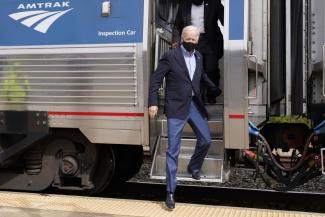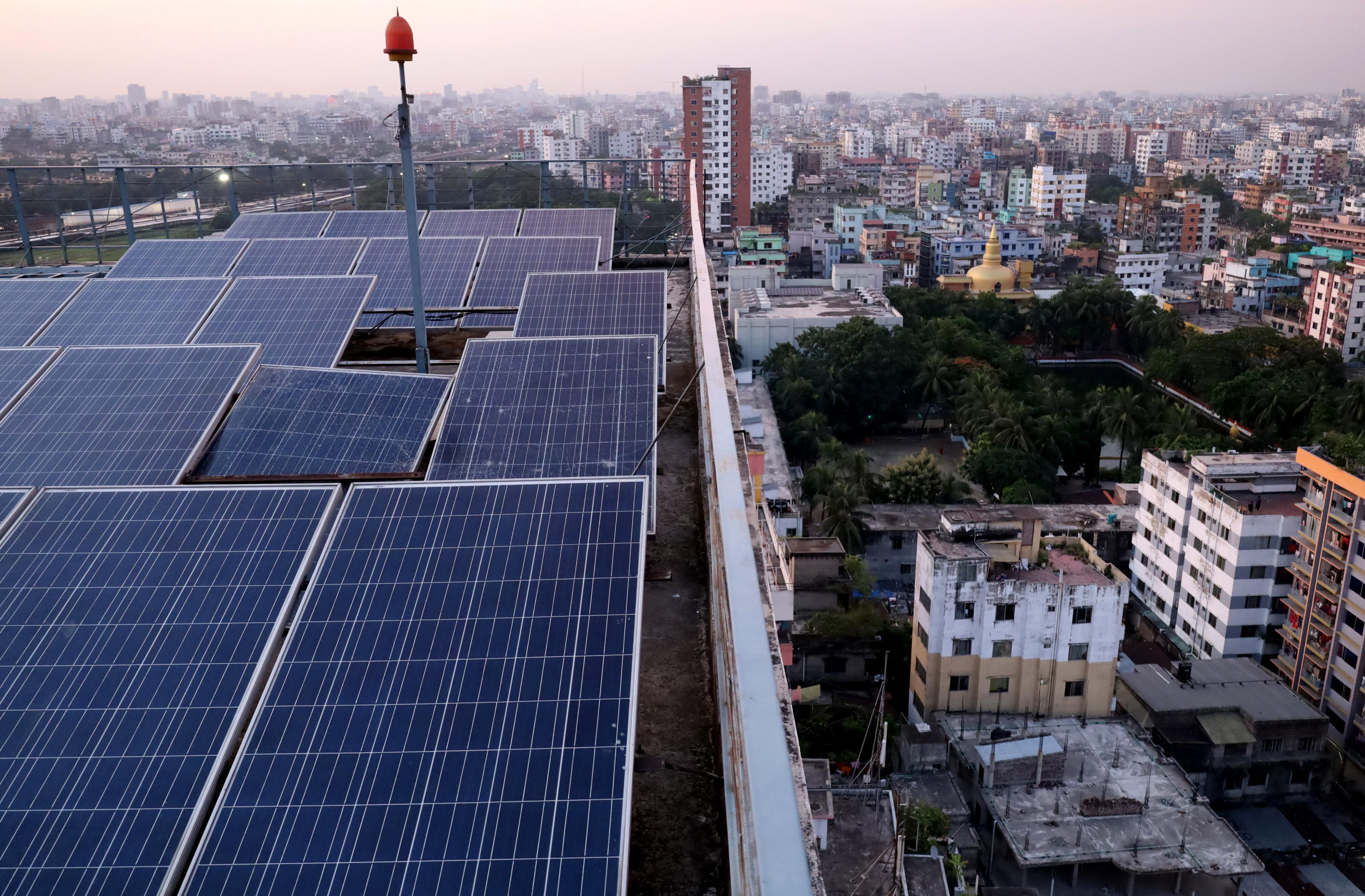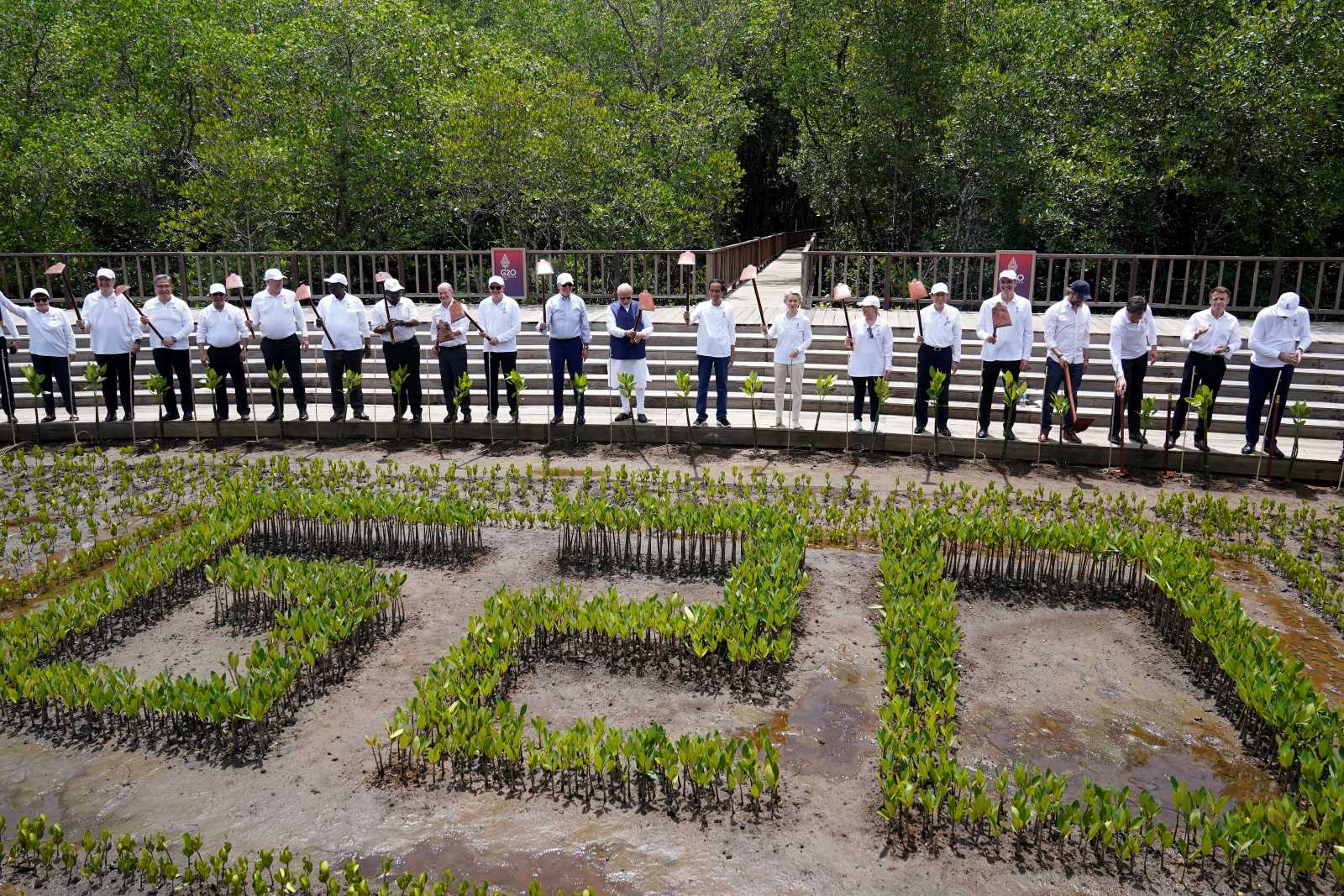USA
Scaling up the USA’s climate ambitions

Unlike his predecessor Donald Trump, Joe Biden does not deny climate science. He accepts the indisputable fact that global warming is driven by human action. Since the Industrial Revolution, global temperatures have already risen by more than 1°C. The decade from 2010 to 2019 was the warmest on record. To stop the planet from heating further, humankind must phase out the use of fossil fuels.
The scientific consensus is that humankind must halve CO2 emissions by 2030 and reach net-zero emissions by 2050. The clock is ticking.
The USA is one of the largest greenhouse-gas emitting countries in the world, and it has been slow to reduce emissions. Some progress was made when Barack Obama was president, but the Trump years were a disaster. He withdrew from the Paris Agreement on Climate Change, reversed policies introduced by his predecessor and actively promoted fossil fuels.
Biden wants to repair the damage – and not only in regard to environmental issues. He understands that only nations that solve problems have a claim to global leadership. Obviously, the impacts of climate change are devastating. In recent years, wildfires in the West, floods in the Midwest and hurricanes in the South and East have caused massive harm in the USA itself.
The public in the USA and around the world, however, is paying attention to other issues as well. That includes deepening social disparities in the USA as well as serious political divisions, which became most obvious when Trump supporters stormed the Capitol in Washington on 6 January. The Biden administration knows that the better it manages to rise to these challenges, the stronger its international influence will become.
Within 100 days of taking office, Biden launched three massive spending programmes: the American Rescue Plan ($ 1.9 trillion), the American Jobs Plan ($ 2.2 trillion) and the American Family Plan ($ 1.8 trilion). The first primarily tackles the impacts of the Covid-19 pandemic, but also includes some infrastructure spending. The focus of the second is on creating employment and opportunities by building infrastructure, and climate protection is a top priority. In many ways, the American Jobs Plan is a response to environmental activists’ demands for a “Green New Deal” (see box). The third plan has little climate relevance and is designed to reduce social disparities.
On his first day in office, Biden committed to rejoining the Paris Agreement. By executive order, he declared that the US will scale up its nationally determined contributions in time for the upcoming climate summit in Glasgow in November (COP26 – 26th conference of parties of United Nations framework convention on climate change). At the same time, the president wants to promote environmental justice by channelling 40 % of the federal government’s sustainability-related spending to disadvantaged communities. Moreover, Biden officials understand that China is leading in many areas of sustainability, such as renewable energy and transport. The USA has nothing that compares to the People’s Republic’s excellent high-speed railway network.
The new US administration is keenly aware of China’s progress having resulted from government action, not unregulated free-market competition. They know that inequality has become worse in recent decades and that unguided market forces, as such, do very little to tackle the Covid-19 pandemic. Previous presidents of the Democratic Party worried about intervening in markets too much. By contrast, Biden officials worry they may not be doing enough.
Biden is taking a “whole of government” approach. Twenty-one departments of the federal government are involved in his new National Climate Task Force. It is in charge of promoting relevant policies such as eliminating subsidies for fossil fuels and drafting a plan for emissions free electricity in 15 years. The Task Force is led by Gina McCarthy, the national climate advisor, who headed the Environmental Protection Agency under Obama.
Biden’s leadership appointments convey his climate ambitions. John Kerry, former Secretary of State, has become the Special Presidential Envoy for Climate, ranking as a cabinet member. Deb Haaland, an indigenous woman, is Biden’s secretary of the interior. She is in charge of halting drilling for oil on public lands and other important land-management issues. Observers agree that Biden’s team consists of highly qualified individuals with proven compentece and strong track records.
Biden plans to establish a Civilian Climate Corps (CCC) . This proposal mimics the Civilian Conservation Corps that President Franklin D. Roosevelt created in the 1930s as part of the New Deal. The new CCC would pay some 200,000 young volunteers to take care of public lands, waters and community resources, for example supporting the National Parks system. The approach fits a long history of Americans rallying together to overcome crises. Moreover, it would help to solve the unemployment crisis.
The Biden administration has been fast to reach out to international partners, moreover. In early April, Kerry visited China, and both sides agreed to cooperate on climate action. In late April, Biden hosted a virtual climate summit with 40 world leaders. At the summit, Biden committed the United States to cutting 50 % of greenhouse-gas emissions by 2030 compared to 2005 and set the precedent for other global leaders to scale up climate ambition.
Katie Cashman is a sustainable-development consultant who has worked with the international social change platform 2811 and UN-Habitat (United Nations Human Settlements Programme), among other organisations.
katie@2811.cl














